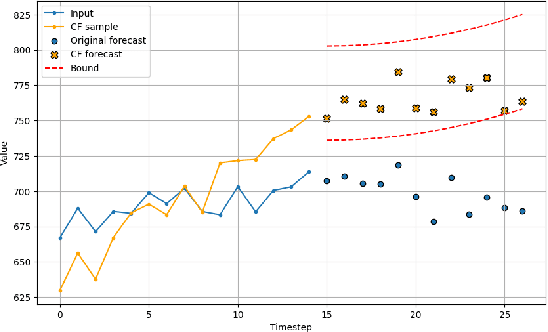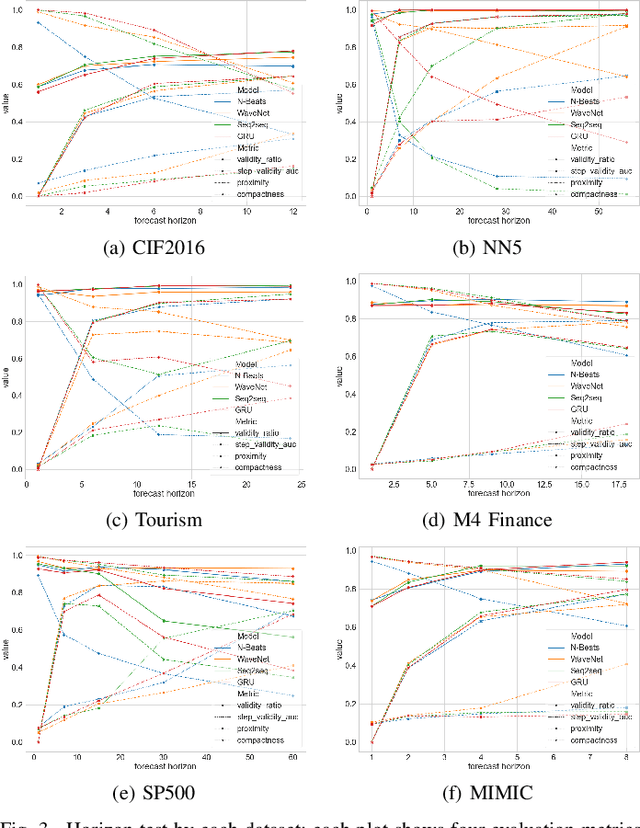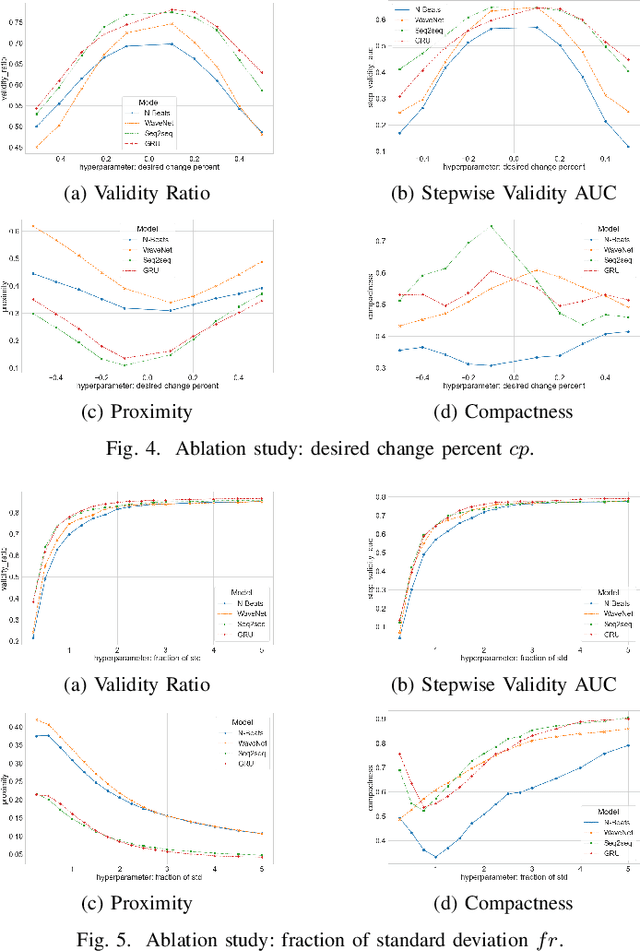Counterfactual Explanations for Time Series Forecasting
Paper and Code
Oct 12, 2023



Among recent developments in time series forecasting methods, deep forecasting models have gained popularity as they can utilize hidden feature patterns in time series to improve forecasting performance. Nevertheless, the majority of current deep forecasting models are opaque, hence making it challenging to interpret the results. While counterfactual explanations have been extensively employed as a post-hoc approach for explaining classification models, their application to forecasting models still remains underexplored. In this paper, we formulate the novel problem of counterfactual generation for time series forecasting, and propose an algorithm, called ForecastCF, that solves the problem by applying gradient-based perturbations to the original time series. ForecastCF guides the perturbations by applying constraints to the forecasted values to obtain desired prediction outcomes. We experimentally evaluate ForecastCF using four state-of-the-art deep model architectures and compare to two baselines. Our results show that ForecastCF outperforms the baseline in terms of counterfactual validity and data manifold closeness. Overall, our findings suggest that ForecastCF can generate meaningful and relevant counterfactual explanations for various forecasting tasks.
 Add to Chrome
Add to Chrome Add to Firefox
Add to Firefox Add to Edge
Add to Edge